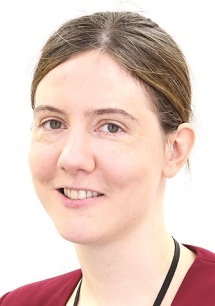King’s Fund: rising costs may limit availability of medicine
Its report, The rising cost of medicines to the NHS: what’s the story, said that NHS medicines spending increased by £4.4bn between 2010/11 and 2016/17, an average growth of around 5% a year. During the same period, NHS funding overall grew by an average of 1% overall.
The cost – £17.4bn in 2016/17 – includes generic and branded drugs. In recent years, spending on the latter group has been restricted by the Pharmaceutical Price Regulation Scheme.
The greatest growth in spending was seen in the hospital sector, which now accounts for more than half the total NHS spending on drugs. The King’s Fund said hospital medicine costs grew by 12% a year on average since 2010/11.
A lack of robust data means the scale of and reasons for this growth are unclear, it said, but it is likely to have been fuelled by an increase in the number of patients treated and the introduction of expensive new treatments – for example, drugs for cancer and autoimmune conditions.
The fund acknowledged there were some limitations to its figures, as they were based on list prices and not the price paid by the NHS, which could be lower.
In primary care, there has been a rapid increase in the number of prescriptions issued, with more than 1 billion items prescribed in 2016. This is due to a rise in the use of drugs such as statins and anti-depressants, it said.
Spending growth has been much lower than in hospitals due to the success of policy initiatives, such as encouraging the use of cheaper generic drugs, that have led to a reduction of nearly 25% in the average costs per prescription item, the report added.
To curb costs, policy-makers have tried to regain control over drugs spending – for example, by introducing a budget impact test for new products that will cost more than £20m a year, reforming the Cancer Drugs Fund and restricting prescription of medicines that can be bought over the counter or are deemed low value. However, new cost pressures are emerging, such as the use of biological treatments and the development of effective but expensive products, such as new drugs to treat hepatitis C and prevent HIV, the report added.
The report warns that the health service faces difficult choices as it seeks to balance the competing goals of giving patients access to effective treatments, incentivising pharmaceutical sector innovation and ensuring NHS medicine spending is affordable.
King’s Fund senior policy adviser Helen McKenna (pictured) said the NHS had successfully contained medicines spending over the years, but was struggling to balance access, innovation and affordability.
‘It is important to tackle inappropriate prescribing and the overuse of medicines, especially antibiotics. However, we are now seeing policy-makers implementing increasingly controversial measures to control the medicines bill.
‘With the choices facing policy-makers becoming more difficult, there is a risk of returning to the 1990s, when funding pressures led to widespread concern about the erosion of patients’ access to medicines.’
Related content
We are excited to bring you a fun packed Eastern Branch Conference in 2025 over three days.
This event is for those that will benefit from an overview of costing in the NHS or those new to costing and will cover why we cost and the processes.